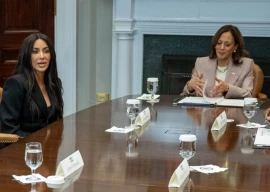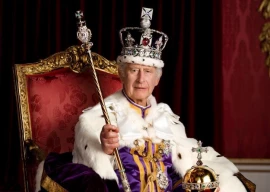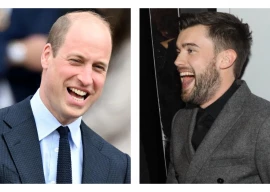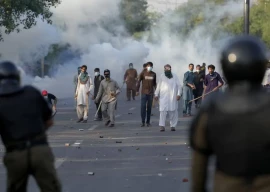
Iran and six major world powers reached a nuclear deal on Tuesday, capping more than a decade of negotiations with an agreement that could transform the Middle East.
US President Barack Obama hailed a step towards a ‘more hopeful world’ and Iran’s President Hassan Rouhani said it proved that ‘constructive engagement works’. The agreement will now be debated in the US Congress, but Obama said he would veto any measure to block it.
“This deal offers an opportunity to move in a new direction,” Obama said. “We should seize it.”
Under the deal, sanctions imposed by the United States, European Union and United Nations will be lifted in return for Iran agreeing long-term curbs on a nuclear programme that the West has suspected was aimed at creating a nuclear bomb. Iran will mothball for at least a decade the majority of its centrifuges used to enrich uranium and sharply reduce its low-enriched uranium stockpile.
“Today is the end to acts of tyranny against our nation and the start of cooperation with the world,” Rouhani said in a televised address. “This is a reciprocal deal. If they stick to it, we will. The Iranian nation has always observed its promises and treaties.”
Delighted Iranians took to the streets, honking car horns and flashing victory signs in celebration after
the announcement a deal they hope will end years of sanctions and isolation.
For Obama, the diplomacy with Iran, begun in secret more than two years ago, ranks alongside his normalisation of ties with Cuba as landmarks in a legacy of reconciliation with foes that tormented his predecessors for decades.
“History shows that America must lead not just with our might but with our principles,” he said in a televised address. “Today’s announcement marks one more chapter in our pursuit of a safer, more helpful and more hopeful world.”
Republicans in the US lined up to denounce the deal. Presidential candidate Lindsey Graham called it a terrible deal that would make matters worse. Former senator Rick Santorum, another candidate, said the administration had capitulated to Iran.
The Republican-controlled Congress has 60 days to review the accord, but if it votes to reject it Obama can use his veto, which can be overridden only by two-thirds of lawmakers in both houses. That means dozens of Obama’s fellow Democrats would have to rebel against one of their president’s signature achievements to kill it, an unlikely prospect.
While the main negotiations were between the US and Iran, the four other UN Security Council permanent members – Britain, China, France and Russia – are also parties to the deal, as is Germany.
British Foreign Secretary Philip Hammond told reporters that the deal was about more than just the nuclear issue: “The big prize here is that, as Iran comes out of the isolation of the last decades and is much more engaged with Western countries, Iranians hopefully begin to travel in larger numbers again, Western companies are able to invest and trade with Iran, there is an opportunity for an opening now.”
Still, Washington’s friends in the region were furious, especially Israel, whose prime minister, Benjamin Netanyahu, has cultivated a close relationship with Obama’s Republican opponents in Congress.
“Iran will get a cash bonanza of hundreds of billions of dollars, which will enable it to continue to pursue its aggression and terror in the region and in the world,” he said. “Iran is going to receive a sure path to nuclear weapons.”
His deputy foreign minister, Tzipi Hotovely, denounced an ‘historic surrender’ and said Israel would “act with all means to try and stop the agreement being ratified,” a clear threat to use its influence to try and block it in Congress.
While Saudi Arabia did not denounce the deal publicly as Israel did, its officials expressed doubt in private. “We have learned as Iran’s neighbours in the last 40 years that goodwill only led us to harvest sour grapes,” a Saudi official who asked to remain anonymous told Reuters.
Nor were hardliners silent in Iran.
“Celebrating too early can send a bad signal to the enemy,” conservative lawmaker Alireza Zakani said in parliament, according to Fars News agency. “[Iran’s] National Security Council will review the accord and if they think it is against our national interests, we will not have a deal.”
The deal finally emerged after nearly three weeks of intense negotiation between US Secretary of State John Kerry and Iran’s Foreign Minister Mohammad Javad Zarif.
“Today could have been the end of hope on this issue, but now we are starting a new chapter of hope,” Zarif told a news conference. “This is the good deal we have sought,” said Kerry.
EU foreign policy chief Federica Mogherini said: “I think this is a sign of hope for the entire world.”
For Iran, the end of sanctions could bring a rapid economic boom by lifting restrictions that have shrunk its economy by about 20%, according to US estimates. Once implemented, Tehran will immediately gain access to around $100 billion in frozen assets, and can step up oil exports that have been slashed by almost two-thirds.
The prospect of a deal has already helped push down global oil prices. Oil prices tumbled more than a dollar on Tuesday after the deal was reached.
Published in The Express Tribune, July 15th, 2015.






























1714024018-0/ModiLara-(1)1714024018-0-270x192.webp)










COMMENTS
Comments are moderated and generally will be posted if they are on-topic and not abusive.
For more information, please see our Comments FAQ